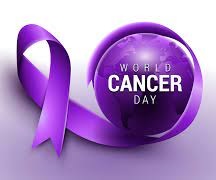

World Cancer Day is an international observance held on February 4 every year to raise awareness about cancer and encourage its prevention, detection, and treatment.
Theme of World Cancer Day
The theme for World Cancer Day 2023 is “I am and I will” which encourages individuals to take action to reduce the impact of cancer. In this blog, we will discuss the significance of World Cancer Day, the current state of cancer worldwide, and what individuals and organizations can do to help fight cancer.
Significance of World Cancer Day
Cancer is one of the leading causes of death worldwide, and its impact is increasing as the population ages and lifestyles change. As indicated by the World Health Organization (WHO), malignant growth is liable for an expected 9.6 million passings every year, and this number is projected to increment to 13.2 million passings by 2030. Most of these passings are preventable, and early recognition and therapy can further develop endurance rates and personal satisfaction for those living with malignant growth.
The current state of cancer worldwide
World Cancer Day was established in 2000 by the Union for International Cancer Control (UICC) to raise global awareness of cancer and encourage action to reduce its impact.
Each year, World Cancer Day is celebrated with a number of activities, including public events, media campaigns and educational programs.
The purpose of World Cancer Day is to unite the global community in the fight against cancer and to encourage individuals, organizations and governments to take action to reduce the impact of cancer.
The current situation of cancer worldwide is a cause for concern. Despite advances in treatment and research, the number of cancer cases continues to rise, and disparities in access to care and outcomes persist. In low- and middle-income countries, where the majority of the world’s population lives, the burden of cancer is increasing, and access to treatment and care is limited. These countries face many challenges, including lack of resources, limited access to care, and lack of awareness of the importance of early detection and treatment.
What individuals and organizations can do to help fight cancer?
There are numerous ways that people and associations can uphold the battle against malignant growth. One of the most significant is to bring issues to light about the significance of early location and treatment. By instructing individuals about the signs and side effects of malignant growth and empowering them to look for brief clinical consideration, we can assist with diminishing the effect of malignant growth and further develop results for those living with the sickness.
One more significant method for supporting the battle against disease is to advocate for expanded financing for examination and treatment. Malignant growth research has prompted many advances in the comprehension of the sickness and the improvement of new therapies, and proceeded with interest in research is basic to further developing results for those living with disease.
Individuals and organizations can also help in the fight against cancer by volunteering and participating in fundraising events. Many cancer organizations rely on the support of volunteers and donors to continue their work, and by participating in events like walks and runs, we can help raise awareness and funds for cancer research and treatment.
participating in the fight against cancer
One more method for aiding in the battle against disease is to bring issues to light about the significance of preventive measures. This incorporates making way of life changes, for example, eating a solid eating regimen, staying away from tobacco use, and being truly dynamic. This incorporates standard screening and check-ups, as early identification is critical to further developing results for those living with the disease.
Addressing disparities in access to care and outcomes for different populations is also critical. This includes addressing the social and economic factors that contribute to these disparities, such as poverty, lack of access to health care, and limited access to information about cancer. This includes addressing the social and economic factors that contribute to these disparities, such as poverty, lack of access to health care, and limited access to information about cancer.
Addressing these disparities will require a concerted effort by governments, health care organizations, and individuals, but is a necessary step toward reducing the impact of cancer worldwide. Notwithstanding these endeavors, it is likewise essential to advocate for strategy change at the public and worldwide levels. This incorporates upholding expanded financing for disease research, expanded admittance to mind and treatment, and arrangements that help precautionary measures and address aberrations in admittance to mind.
Another Aspect against Cancer
One more significant part of the battle against malignant growth is to help those living with the illness. This incorporates offering close to home help and assets for people and families impacted by disease. It additionally includes pushing for approaches that help those living with malignant growth, for example, took care of time for clinical arrangements and treatment, and admittance to quality, reasonable medical services.
Let us all take a pledge on World Cancer Day 2023 to be proactive in our lives and do our part to reduce the impact of cancer.
By adopting healthy lifestyles, getting regular checkups, and advocating for increased funding for research and treatment, we can help create a world where cancer is no longer the leading cause of death. Remember, “I am and I will” – let us all practice it.
Conclusion
Finally, World Cancer Day provides an opportunity for individuals and organizations to come together to raise awareness about cancer and encourage action to reduce its impact.
Whether it’s through education, advocacy, volunteering, or fundraising, we can all play a role in the fight against cancer.Let’s take action this World Cancer Day to create a world where cancer is no longer the leading cause of death and where people and families affected by cancer have the support they need to thrive.





